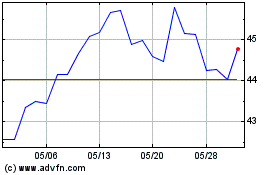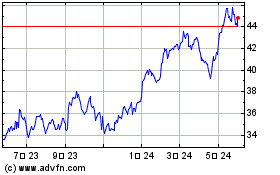UNITED STATES
SECURITIES AND EXCHANGE COMMISSION
Washington, D.C. 20549
Form 6-K
REPORT OF FOREIGN PRIVATE ISSUER PURSUANT TO RULE 13a-16 OR
15d-16
UNDER THE SECURITIES EXCHANGE ACT OF 1934
For the
month of November 2024
Commission
File Number 001-15170
GSK plc
(Translation
of registrant's name into English)
79 New Oxford Street, London, WC1A 1DG
(Address
of principal executive office)
Indicate
by check mark whether the registrant files or will file annual
reports under cover of Form 20-F or Form 40-F.
Form
20-F . . . .X. . . . Form 40-F . . . . . . . .
Issued: 19 November 2024, London UK
Linerixibat shows positive Phase III results in cholestatic
pruritus (relentless itch) in primary biliary cholangitis
(PBC)
●
Primary
endpoint met with a statistically significant
improvement in
itch over 24 weeks compared with placebo
●
Linerixibat
has the potential to be the first global therapy indicated to treat
itch in PBC
●
Cholestatic
pruritus is one of the most common symptoms of PBC, an autoimmune
disease that can lead to liver failure
GSK plc (LSE/NYSE: GSK) today announced positive headline results
of GLISTEN, the ongoing global phase III clinical trial evaluating
linerixibat, an investigational targeted inhibitor of the ileal
bile acid transporter (IBAT), in adults with cholestatic pruritus
(relentless itch) associated with primary biliary cholangitis
(PBC), a rare autoimmune liver disease.
GLISTEN met its primary endpoint, with linerixibat resulting in an
improvement in itch, as demonstrated by a statistically significant
reduction from baseline in monthly itch score over 24 weeks versus
placebo. The trial recruited PBC patients with moderate to severe
itch, who were receiving stable doses of guideline-suggested
therapies for pruritus, or were treatment naïve, or had been
previously treated. The preliminary safety results are generally
consistent with those seen in prior studies of
linerixibat. Further
analysis of these data is ongoing.
Kaivan Khavandi, SVP & Global Head, Respiratory/Immunology
R&D, GSK, said:
"Linerixibat has the potential to be the first global therapy
specifically developed to treat itch in PBC. These positive data
suggest that it could have a place in supporting patients whose
quality of life is significantly affected in multiple ways by
persistent itching."
People who have been diagnosed with PBC will reach 510,000 globally
by 2030, and more than 240,000 people will experience relentless
itch requiring treatment, representing a significant unmet
need. 1,2,3,4 Current
guideline suggested therapies available for cholestatic pruritus
are inadequate, with known limited impact on itch, and poor
tolerability. 5,6 PBC
is a rare disease of the bile ducts that primarily affects women
and can cause liver damage and possible liver failure if untreated.
One of the most common symptoms is constant, relentless itching or
skin-crawling sensations, as well as fatigue that is often made
worse by itching at night. The disease currently has no
cure.
Carol Roberts, President, The PBCers
Organization, said: "The itch
associated with PBC for many patients is unrelenting and often
severe but is a symptom that is frequently overlooked or dismissed.
It has a significant impact on quality of life and mental health
for people with PBC. The potential of a treatment option that
addresses a root cause of itch answers a previously unmet need for
people with PBC."
The full results of GLISTEN will be presented at a future
scientific congress. Linerixibat is
currently not approved anywhere in the world; it has been granted
Orphan Drug Designation in both the US and EU.
About cholestatic pruritus in primary biliary
cholangitis
In primary biliary cholangitis (PBC), a cholestatic liver disease,
bile flow from the liver is disrupted. The resulting excess bile
acids in circulation are thought to play a causal role in
cholestatic pruritus, an internal itch that cannot be relieved by
scratching. Pruritus can occur at any stage of PBC disease and is
experienced by up to 90% of people living with
PBC.4 The
first line treatment for PBC controls disease in approximately 70%
of patients, but does not reduce the severity or impact of the
pruritus.7 Cholestatic
pruritus is a serious condition that can be debilitating, with
patients experiencing sleep disturbance, fatigue, impaired quality
of life and even sometimes requiring liver transplantation in the
absence of liver failure.4
About linerixibat (GSK2330672)
Linerixibat is an ileal bile acid transporter (IBAT) inhibitor, a
targeted oral agent with potential to treat cholestatic pruritus
(itch) associated with the rare autoimmune liver disease known as
primary biliary cholangitis (PBC). By inhibiting bile acid
re-uptake, linerixibat aims to address a root cause of cholestatic
pruritus. The US Food and Drug Administration and the European
Medicines Agency have granted orphan drug designation for
linerixibat in the treatment of cholestatic pruritus associated
with PBC.
About the GLISTEN trial
GLISTEN is an ongoing double-blind, randomised, placebo-controlled,
phase III trial (NCT04950127; GSK study 212620) conducted in PBC
patients with cholestatic pruritus. The primary analysis evaluated
the efficacy (including impact on sleep) and safety of linerixibat
compared with placebo. Participants with moderate to severe itch
were enrolled. The trial includes multiple arms where participants
receive either linerixibat or placebo and have the potential to
cross over at one point in the study. Primary and secondary outcome
measures were assessed using the Numerical Rating Scale (NRS) for
worst itch and itch-related sleep interference, and the PBC-40
questionnaire for quality of life. Stable use of guideline
suggested anti-itch therapy was permitted. A small number of
participants remain ongoing in an exploratory portion of the
trial.
About GSK
GSK is a global biopharma company with a purpose to unite science,
technology, and talent to get ahead of disease together. Find out
more at gsk.com.
|
GSK enquiries
|
|
|
|
|
Media:
|
Tim Foley
|
+44 (0) 20 8047 5502
|
(London)
|
|
|
Sarah Clements
|
+44 (0) 20 8047 5502
|
(London)
|
|
|
Kathleen Quinn
|
+1 202 603 5003
|
(Washington DC)
|
|
|
Lyndsay Meyer
|
+1 202 302 4595
|
(Washington DC)
|
|
|
|
|
|
|
Investor Relations:
|
Annabel Brownrigg-Gleeson
|
+44 (0) 7901 101944
|
(London)
|
|
|
James Dodwell
|
+44 (0) 20 8047 2406
|
(London)
|
|
|
Mick Readey
|
+44 (0) 7990 339653
|
(London)
|
|
|
Camilla Campbell
|
+44 (0) 7803 050238
|
(London)
|
|
|
Steph Mountifield
|
+44 (0) 7796 707505
|
(London)
|
|
|
Jeff McLaughlin
|
+1 215 751 7002
|
(Philadelphia)
|
|
|
Frannie DeFranco
|
+1 215 751 4855
|
(Philadelphia)
|
Cautionary statement regarding forward-looking
statements
GSK cautions investors that any forward-looking statements or
projections made by GSK, including those made in this announcement,
are subject to risks and uncertainties that may cause actual
results to differ materially from those projected. Such factors
include, but are not limited to, those described under Item 3.D
"Risk factors" in GSK's Annual Report on Form 20-F for 2023, and
GSK's Q3 Results for 2024.
Registered in England & Wales:
No.
3888792
Registered Office:
79
New Oxford Street
London
WC1A
1DG
References
1 Lu M et
al. Clin
Gastroenterol Hepatol. 2018
Aug;16(8):1342-1350
2 Sebode M et
al. Z
Gastroenterol. 2020
May;58(5):431-438
3 Tanaka A et
al. Hepatol
Res. 2019
Aug;49(8):881-889
4 Gungabissoon U, et al.. BMJ Open
Gastroenterol 2024;
11(1)
5 Hegade
VS, et al. Clin
Gastroenterol Hepatol. 2019
Jun;17(7):1379-1387
6 Mayo
MJ et al. Dig Dis
Sci. 2023
Mar;68(3):995-1005
7 Carbone M, et
al. Lancet
Gastroenterol Hepatol. 2018 Jul
13;3(9):626-634
SIGNATURES
Pursuant
to the requirements of the Securities Exchange Act of 1934, the
registrant has duly caused this report to be signed on its behalf
by the undersigned, thereunto duly authorised.
|
|
GSK plc
|
|
|
(Registrant)
|
|
|
|
|
Date: November
19, 2024
|
|
|
|
|
|
|
By:/s/ VICTORIA
WHYTE
--------------------------
|
|
|
|
|
|
Victoria Whyte
|
|
|
Authorised
Signatory for and on
|
|
|
behalf
of GSK plc
|
GSK (NYSE:GSK)
過去 株価チャート
から 12 2024 まで 1 2025

GSK (NYSE:GSK)
過去 株価チャート
から 1 2024 まで 1 2025
